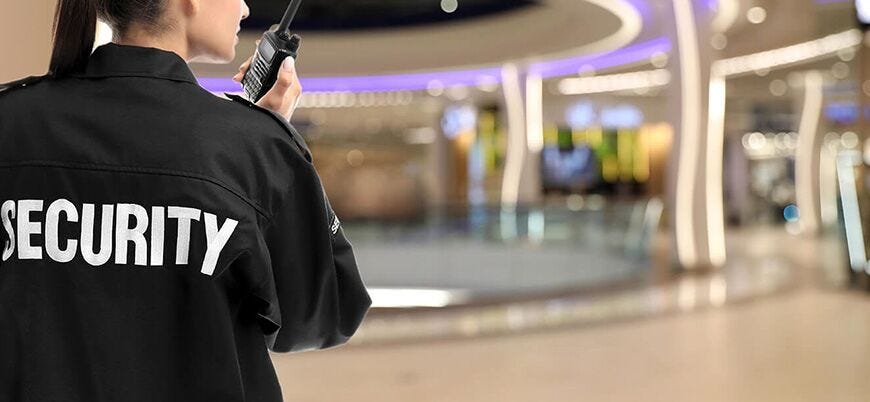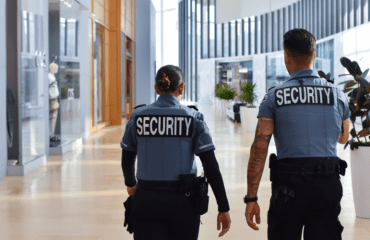In the hospitality industry, ensuring the safety and security of guests, staff, and assets is paramount. Hotels face unique security challenges due to the constant influx of people, diverse activities, and the need to maintain a welcoming environment. Implementing effective security practices is essential to creating a safe and secure environment for everyone. This blog will explore the best practices for security, focusing on safeguarding guests, staff, and assets.
Alpine Protection Services
Alpine Protection Services is a trusted leader in providing top-tier security services tailored to meet the unique needs of businesses and individuals. Specializing in a wide range of security services, including residential, commercial, and event security, Alpine Protection Services ensures that every client receives customized protection plans. With a team of highly trained and licensed security professionals, they prioritize safety and efficiency, utilizing the latest technology and strategies to prevent and respond to potential threats. Whether it’s safeguarding property, protecting guests, or ensuring smooth operations, Alpine Protection Services delivers peace of mind through exceptional security services.
Understanding the Importance of Hotel Security
It is more than just preventing theft or vandalism; it’s about creating a safe environment where guests can relax and enjoy their stay. When guests feel secure, they are more likely to have a positive experience and return in the future. In addition, effective hotel security helps protect staff, ensuring they can perform their duties without fear of harm. Finally, safeguarding hotel assets, such as property, equipment, and information, is crucial to maintaining the financial stability and reputation of the hotel.
Strengthening Perimeter Security
The perimeter of a hotel is the first line of defense against potential threats. Securing entrances, exits, and the surrounding property is essential to keeping unauthorized individuals from gaining access. Installing high-quality fencing, gates, and barriers around the hotel property can help deter trespassers. In addition, utilizing access control points at all entryways, including the parking lot, ensures that only guests, staff, and authorized visitors can enter. Security personnel stationed at these points can further enhance protection by conducting visual inspections and monitoring suspicious activities.
Improving Parking Lot Safety
Parking lots are often overlooked in security plans but can be vulnerable areas where crimes such as theft or vandalism may occur. Implementing a well-lit and monitored parking lot can significantly reduce the risk of incidents. Installing surveillance cameras and ensuring that security personnel conduct regular patrols can increase guest safety. Furthermore, providing guests with well-marked, secure parking spaces near hotel entrances enhances both convenience and security, allowing guests to feel safer when entering and exiting the premises.
Ensuring Cybersecurity for Hotel Operations
In the digital age, hotels must prioritize cybersecurity alongside physical security. Protecting guest information, such as personal details and payment data, is critical to maintaining trust and preventing data breaches. Hotels should invest in robust cybersecurity measures, including firewalls, encryption, and secure Wi-Fi networks, to safeguard digital assets. Regular cybersecurity audits, employee training on data protection protocols, and the use of multi-factor authentication can further enhance the hotel’s defenses against cyber threats.
Emergency Response Drills and Training
Effective hotel security isn’t just about preventing incidents but also about being prepared for emergencies when they occur. Conducting regular emergency response drills for both staff and security personnel ensures that everyone knows their roles during a crisis. Drills should cover scenarios such as fires, natural disasters, medical emergencies, and active threats. Ensuring that staff are well-versed in evacuation procedures, first aid, and how to communicate with emergency services can save lives and minimize chaos during an actual emergency.
Collaborating with Local Law Enforcement
Strong relationships with local law enforcement agencies can enhance security. Hotels should work closely with police departments, fire services, and emergency medical teams to develop coordinated response plans. Regular communication and sharing information about potential security threats or incidents can help law enforcement respond more effectively in emergencies. In addition, hosting joint training sessions or inviting law enforcement officers to conduct security assessments can provide valuable insights into improving the hotel’s overall security posture.
Incorporating Health and Safety Protocols
Hotel security should also encompass health and safety protocols, particularly in light of recent global events. Ensuring a clean and sanitary environment is part of keeping guests and staff safe. Implementing health screenings, maintaining cleanliness standards, and ensuring proper ventilation are key components of modern security. Hotels should also be prepared to address medical emergencies, with staff trained in first aid and CPR, and have clear procedures in place for responding to health-related incidents.
Reviewing and Updating Security Policies Regularly
It needs are constantly evolving, and security policies should be reviewed and updated regularly to keep pace with new threats and technologies. Hotels should conduct periodic assessments of their security measures, policies, and procedures to ensure they are still effective and relevant. Incorporating feedback from guests, staff, and security experts can provide valuable insights into potential areas of improvement. Regularly updating security policies also helps ensure that the hotel remains compliant with industry standards and legal requirements, maintaining a safe and secure environment for everyone.
Implementing Guest Awareness Programs
In addition to robust security measures, educating guests on security protocols can greatly enhance overall safety. Hotels can implement guest awareness programs that inform visitors about security features, emergency exits, and best practices for personal safety during their stay. These programs can be introduced during check-in, included in room brochures, or even communicated through the hotel’s mobile app. By encouraging guests to be vigilant and report any suspicious activity, hotels can create a cooperative security environment where both staff and guests work together to maintain a safe space.
Conclusion
Hotel security is a multifaceted responsibility that requires a combination of strong physical measures, effective cybersecurity protocols, and well-trained staff. By implementing best practices, such as strengthening perimeter security, enhancing parking lot safety, and preparing for emergencies, hotels can create a safe and welcoming environment for their guests and staff. Regular reviews and updates to security policies, along with collaboration with local law enforcement, ensure that the hotel remains prepared for any potential threats. By prioritizing both security and guest awareness, hotels can provide not only comfort but also peace of mind, making the safety of all who enter a top priority.



